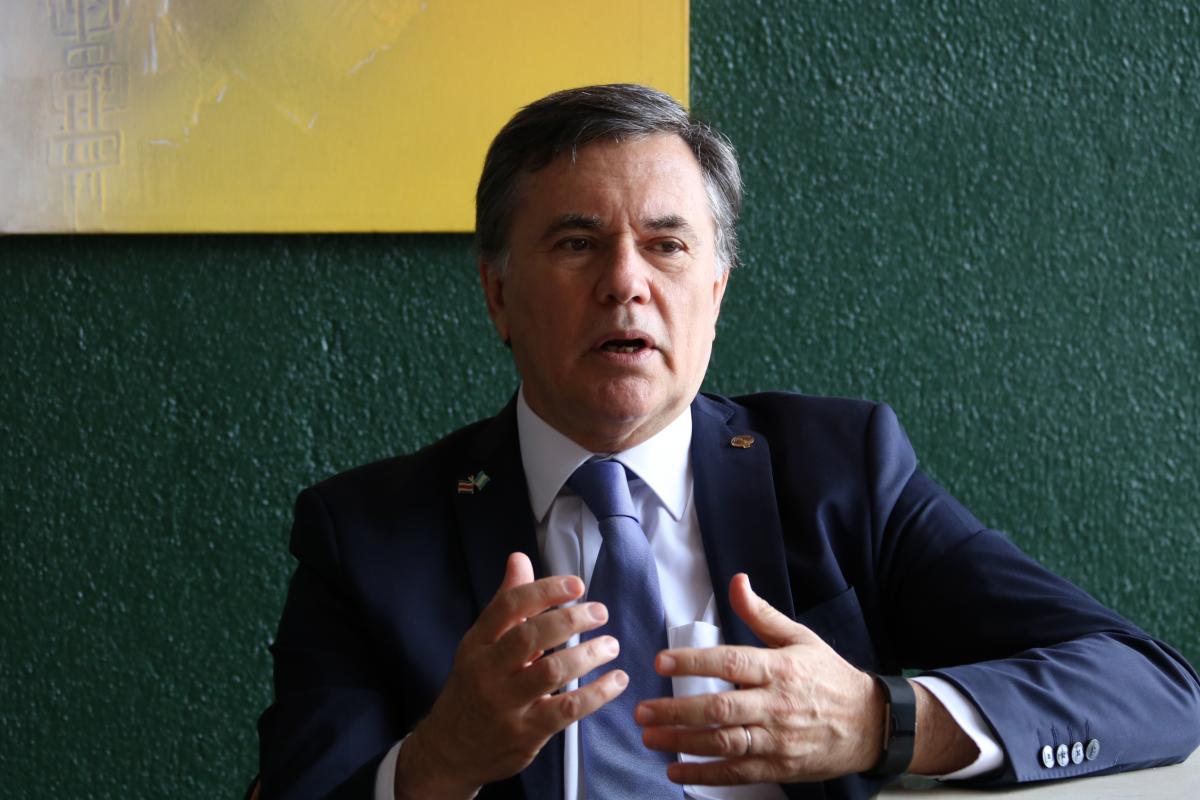More than 200,000 rural families will benefit from this cooperation.

Santiago, 17 April, 2018 (IICA). The transformation and modernization of rural cooperatives in Chile modeled on successful experiences in Costa Rica, Spain, Canada and the Netherlands, and the potential for cooperation in developing the Araucanía region through agricultural activities, were some of the issues addressed at a meeting in Santiago between Chile’s Minister of Agriculture, Antonio Walker Prieto, and the Director General of the Inter-American Institute for Cooperation on Agriculture (IICA), Manuel Otero.
The meeting was part of the working agenda in Chile of the head of IICA, the regional organization that promotes agricultural development. While in Chile, Otero visited the Araucanía region accompanied by the governor and former Minister of Agriculture, Luis Mayol, and also met with heads of major Chilean family farming organizations, businessmen and agricultural leaders.
Otero expressed his support for “Impulso a la Araucanía” (“Boost Araucanía”), the development plan that President Sebastian Pinera’s administration has implemented in the region. The IICA head also stressed the leadership role that his organization is playing in providing strategic input to its member states, and also highlighted IICA’s positive experiences in facilitating cooperation for rural territorial development in countries such as Peru, Brazil and Mexico, among others.
“IICA, an institution with a wealth of experience in issues of social and territorial cohesion in rural areas, views this as a moment of great opportunity to promote technical cooperation within the context of shared interests with the Chilean authorities to enable prosperity in Araucanía”, stated Otero.
IICA’s head recalled that successful development programs “devised by IICA for depressed areas in Brazil, Mexico and Peru, always in conjunction with central and regional governments, have focused on developing strategic plans to instill civic responsibility and facilitate human resource training”.
Otero’s visit to Chile is part of a series of activities stipulated under the Strategic Alliance Declaration signed by IICA and the Chilean Ministry of Agriculture in March, soon after the country’s new administration assumed office.
The focus of IICA’s cooperation programs in Chile will be to strengthen rural associativity, modernize cooperatives and to foster productive alliances, food safety and agricultural health, training of the agricultural labor force and hydro resource management.
For more information:
José Alfredo Alpízar
Press and Outreach Coordinator
jose.alpizar@iica.int











